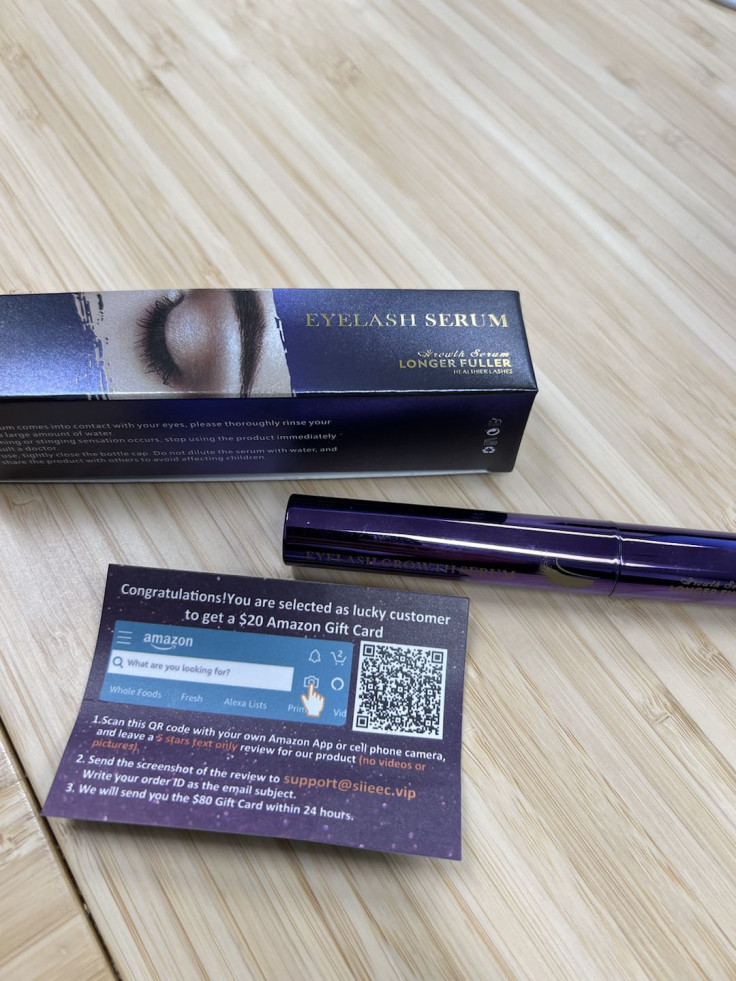'Sold by Amazon' Vendors Manipulate Reviews
Amid Amazon's endless product shuffle, reviews are the lifeblood of consumer trust. Lately, though, the system's been showing its seams.
Allegations uncovered by the International Business Times point to vendors under the "Sold by Amazon" label orchestrating elaborate review scams to pump up product ratings and mislead buyers.
Some vendors are rigging the review game, dangling gift cards and cash to buy praise. It's a blatant breach of Amazon's rules, and it's cracking the foundation of consumer trust. What's baffling is the uneven crackdown—third-party sellers are nailed quickly, but these players appear untouchable.
Amazon's Opaque Stance and Actions
When it comes to review manipulation, Amazon doesn't mess around. Their policy lays it out—try to sway reviews, and you could lose your account, have your products erased, or worse, end up in legal trouble.
In line with this policy, Amazon has taken legal action against bad actors. In 2023, Amazon went on the warpath, filing over 150 lawsuits against review scammers operating in the U.S., China, and Europe. On top of that, it preemptively blocked a staggering 250 million fake reviews from flooding its global storefronts.
Amazon's watchdog efforts still leave gaps, especially when it comes to beauty products. Items like lash serums and anti-aging creams often show up with overinflated ratings, leading to a pointed question—why can't Amazon apply its review standards equally to Amazon Vendors?
The beauty market thrives on perception. It's a realm where effectiveness is a feeling, not a number, and reviews steer everything. A bold five-star claim about magical results can break through buyer hesitation and secure a high-ticket sale. Unsurprisingly, this makes the beauty sector a favorite hunting ground for those leaning on review scams.

A lot of beauty vendors operating under the "Sold by Amazon" banner enjoy perks that third-party sellers can only dream of. This privileged status might shield them from the harsher crackdowns that hit others. The sheer flood of beauty products—and the blink-and-miss-it speed of the market—makes it even harder for Amazon's automated watchdogs to catch every dirty move, especially when manipulation is disguised as legit reviews.
Amazon vendors, often linked to major brands, operate under a different set of rules. Looser oversight and extra protections give them room to maneuver, sparking fears of ethical lines being crossed without consequence. The uneven treatment compared to third-party sellers fuels accusations of a rigged game.
And then there's the bottom line. Beauty's a multi-billion-dollar game with sky-high margins, making it one of Amazon's most lucrative categories.
Beauty brands poured $7.7 billion into ads last year, a staggering war chest aimed at dominating screens and feeds.
It's not far-fetched to think Amazon's deep ties to the beauty industry's profits might overshadow any real urgency to crack down on fake reviews in this lucrative space.
As of this publication, Amazon has not responded to our inquiries and neither has Dharmesh Mehta, Amazon's Vice President of Selling Partner Services.
The Broader Implications
The prevalence of fake reviews is not a trivial issue. A study from the University of California, Los Angeles, documented large markets where sellers on Amazon purchase fake reviews in private Facebook groups, significantly impacting consumer purchasing decisions and the success of honest sellers.
Moreover, Generative AI has thrown gasoline on the fake review fire, churning out fraudulent content faster than ever before. The scale of the problem pushed the Federal Trade Commission to step in.
By August 2024, the FTC locked down a rule outlawing the creation or sale of fake reviews—AI-driven or not—with violations racking up fines as high as $51,744 a pop.

Who Can You Trust?
Trust in e-commerce depends on clean customer reviews. Amazon has taken steps against review manipulation, but accusations of vendors gaming the system point to a deeper rot.
Shoppers must stay sharp, sifting through reviews with caution.
Meanwhile, buyers should approach the review section with skepticism until Amazon gets its house in order.
Stronger enforcement and better transparency will become mandatory in the age of AI.
This article is part of our ongoing deep-dive into ethical lapses in online retail. Expect more updates soon.
If you have proof of manipulation of Amazon reviews, especially of Amazon Vendors ('Sold by Amazon'), we want to hear from you. Please reach out to me at i.mccall@ibtimes.com.
© Copyright IBTimes 2024. All rights reserved.





















